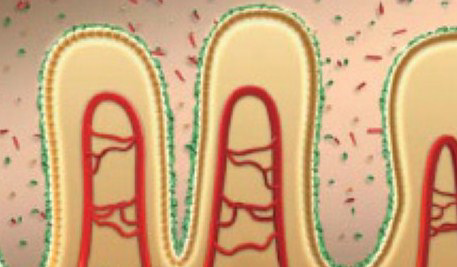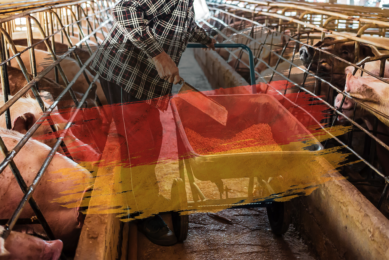NSP enzyme comes with prebiotic effect

The xylanase enzyme might act as a prebiotic as well. This makes enzymes even more functional in animal diets than previously thought. This was one of the conclusions from the recently held NSP enzymes seminar, organised by Huvepharma in Vienna, Austria.
This statement is based on research work from Christophe Courtin and his team from Leuven University in Belgium. Courtin explained the prebiotic potential of arabinoxylan oligosaccharides (AXOS). AXOS is a degradable product that is released when the enzyme xylanase degrades the NSP arabinoxylan (AX), present in the wheat bran “AXOS is a pool of molecules that end up as degradation products of the effect of xylanase and they meet the criteria set for prebiotics”, explained Courtin. A prebiotic has to be non-digestible, resistant to gastric acidity, fermented by colon microbiota and stimulate the gut bacteria in a selective way. “AXOS meets all these criteria”, according the Belgium researcher.
Less Salmonella
But does it also promote the health of the host? A great feature about AXOS is that it releases butyrate, a short-chain fatty acid known to have beneficial effects in the intestinal tract. “We have found that smaller AXOS structures even have a higher butyrate production. It can therefore improve the gut barrier function. In line with this, we have also done studies to find out if AXOS has an effect on Salmonella colonization in broilers. We saw that by supplementing AXOS (0.25 – 0.40%) reduced the cfu of Salmonella in the gut, 7 days after infection. Studies in rats also show that AXOS has an effect on colon lesions in animals with colon cancer”, Courtin said. Also feed conversion rate (FCR) in broilers was shown to be positively affected by the AXOS. Studies from 2010 showed that a dosage of 0.5% AXOS leads to a reduction in FCR of 5%.
Enzyme growth for Huvepharma
Huvepharma, the company that organised this first dedicated NSP enzymes seminar has become very active in the enzyme market over the last five years. The company has increased its turnover from enzymes to 16% in 2009 to 37% of its portfolio in 2014. Last year, Huvepharma created a dedicated global enzyme team in Antwerp, led by Karel Bierman. “With our team we focus on the development of new products, increase our service levels and to support client around the world. The company’s move to grow in the enzyme business is simple. “Enzymes are extremely important for the feed industry as they improve technical results and lower feed costs. And that is what is all about”, concluded Bierman.
Other speakers of the event included Geert Janssens from Ghent University, Damian Jozefiak from Poznan University of Life Sciences, Paul Bikker from Wageningen University, Mia Eeckhout from Ghent University and Doug Decksheimer from Comco. The event attracted around 120 people.











